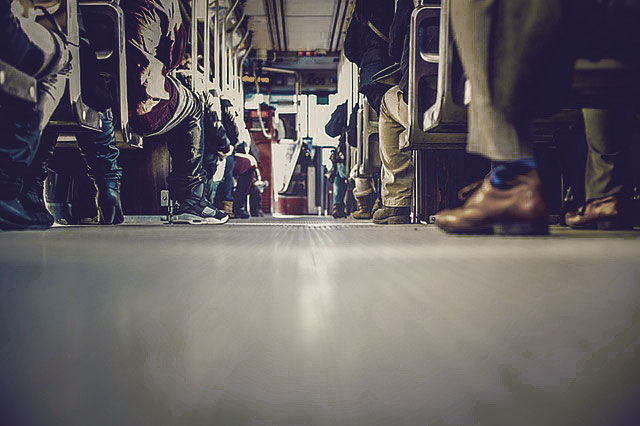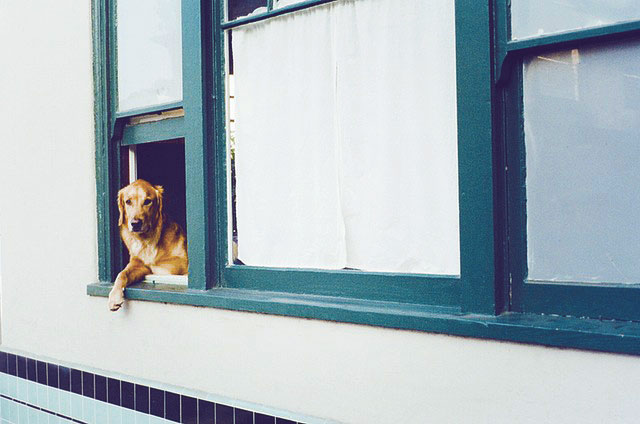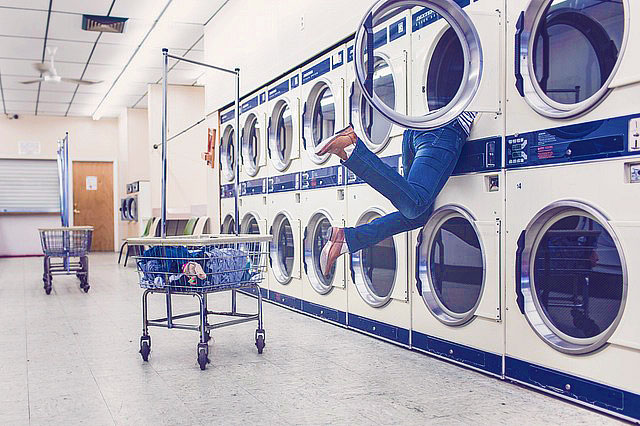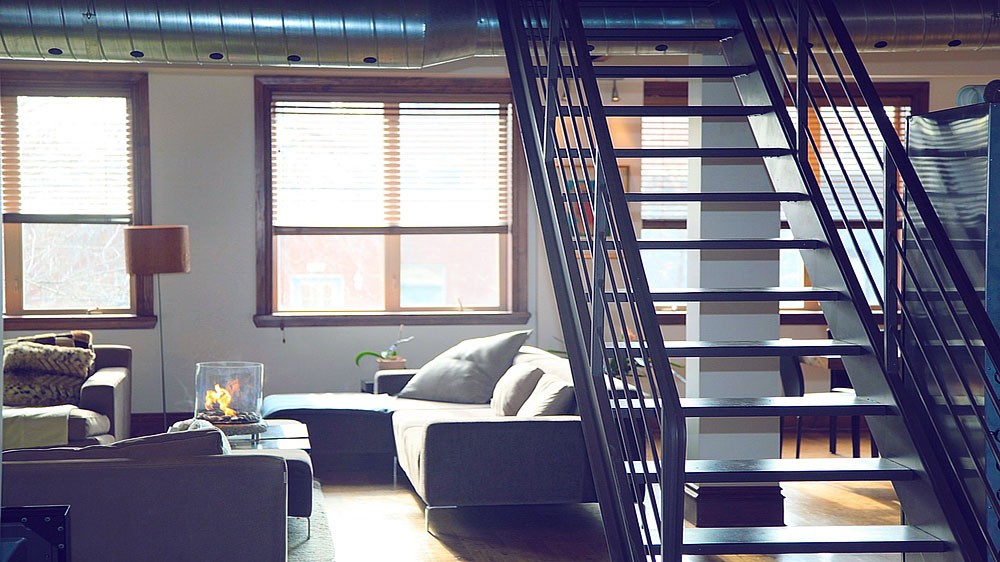W H A T ’ S F I R S T

Decide whether or not you want to live alone. I find that most people I talk to about their first apartment want to have some kind of roommate, unless you’re someone who grew up sharing every inch of your living space with siblings, then maybe this wouldn’t be as appealing to you. Regardless of your decision, make sure it’s the one thing you are sure of first, even before you sort out what you can afford. Why? Because this will impact what apartment layouts you’ll look at. Or if you’ve decided that you’re going to live with a roommate then you need to factor in their opinion of the apartment.
If you decide you want to have a roommate, consider your lifestyle and habits as well as theirs, assuming you already know them. If you want to have a roommate, but don't want to be financially tied to them, try looking for an apartment that does individual leases. In other words, you should look for a multiple bedroom apartment where each bedroom has their own lease you can sign for. Most times for apartments like these the company will provide roommate matching for you. It’s certainly not a bad option if you are new to an area and are looking to save some money in rent and make some new friends. I usually recommend apartments like these to my friends and those new to the University of Illinois.
There are perks to living on your own though and while these apartments tend to cost a little more, you have the independence of your own place to care for. You won’t have anyone complaining about how long your dirty dishes have been sitting in the sink or questioning how long it’s been since you’ve taken a shower. Not that you can’t do that with a roommate, but even the nicest roommate will have their limit on what they will tolerate.
B U D G E T

I had a pretty tight budget when I first started looking at apartments. My paycheck was fairly steady, but I didn’t have the best habits when it came to spending and saving. I also didn’t like the idea of renting because it meant I would be putting money into something that isn’t actually mine. And in my head that looked something like me throwing money out a window and the wind sweeping it away while I wore an expression that very closely resembled Grumpy Cat’s. Regardless, I wanted to get out of my parent’s house despite them stating I didn’t have to leave. I knew I didn’t have to, but I wanted to. The first step I took was thinking about how much I could actually afford. Realistically, I could probably afford $600 dollars for rent. Did I really want to pay that much a month? No. Because I thought about how much money I needed to save and be able to afford groceries. Fortunately, I knew of places I wouldn’t mind living that were somewhere between $450--$550, and I stuck to that.
In order to figure out how much rent you owe, take your annual income and dive that by 40. For example, if you make $30,000 a year you divide that by 40 and that would give you $750, which is how much rent you that is suggested you limit yourself to paying. You may have also heard that you can take 30% of your annual income and that would give you the same recommended amount. The first equation is just a quicker way to calculate (you’re welcome).
Now that you have figured out what your suggested limit is and you have found a place that you would like to rent, take a look at what that price includes. Most times that amount you are looking at is what property management and leasing companies like to call a “base rent.” In other words, that is simply how much it will cost you to rent the apartment, but not cover your utilities or parking. If your base rent is at the edge of what you can afford and does not include your utilities (i.e.: water, electricity, internet, sewer, recycling, etc…), then you might want to reconsider your options. This also leads into the questions of whether or not you would prefer to have a fixed amount you owe to your leasing company/property management company. When I signed the lease for my first apartment neither of these things were something I considered. Would I have preferred to have pay a little more rent and have all my utilities covered for a flat fee? Yes. Would I have appreciated a fixed amount that I owe each month? Yes. It was quite a rude awakening when I saw how much rent I owed at the end of the first month. I quickly found it all incredibly frustrating—still do—because I thought I had done all my research and had allotted the perfect amount of money I was expecting to pay each month. For me that was supposed to be a max of $480, however it turned out that my rent due bounced monthly between $500--$650. Which, if you have a job that pays really well or you have savings to fall back on then maybe this situation wouldn’t be a problem, but otherwise be careful with your spending, because as I’ve learned and like to tell people: money slips through your fingers a lot quicker than what you think it does when you aren’t keeping track of it.
L O C A T I O N

When I was searching for my first apartment, location was one of the reasons that I wanted to move aside from wanting freedom of my parent’s home. While I wanted to be closer to work I also wanted to be closer to other places I knew that I always went to. It made sense to not waste the gas constantly driving a longer distance than I needed to. I also had friends who lived around the area so I would be only a few minutes from them as well. For the most part I felt I had found a very good apartment. However, for those of you moving in from out of town it might be difficult knowing of good places to lease when you aren’t as familiar with the area, but using your resources to familiarize yourself with the area and looking for as many options as possible will help. Sites like Zillow, Craigslist, Facebook, Apartment Finder, and HotPads are great sites to checkout if you are trying to find an apartment.
Something else that goes along with location that might impact where you would like to lease is thinking about your method of transportation. Do you want to be able to ride your bike? Do you have a vehicle? Motorcycle? Skateboard? Segway? Or perhaps you don’t have anything? Fortunately, we have a fantastic MTD system here in Champaign-Urbana. They also have a very helpful website here that gives a list of all the routes that MTD buses travel.
The final thing I would recommend paying attention to with the location you choose is how safe the area is. If you aren’t sure, ask around. Even if you don’t know anyone and don’t feel comfortable asking a stranger, talk to someone in the leasing office or if you happen to see any current tenants around while you are viewing the apartment ask them what they think of the area. Generally, the answer will always be the same; it is a safe area, but take precautions when leaving your apartment for an extended period of time and walking around outside late at night. Even the best areas in town can have their occasional problems. Don’t ever think that where you are living is an exception to that. Listen to your gut. If something doesn’t feel right, then don’t lease there. If you like the people, like the area, and can picture yourself living there then go for it!
P E T S

Having a pet has been something that has been a part of my family since I was a kid, so the thought of not having a pet at my apartment was unappealing. Therefore, when I was looking for an apartment I forgot to consider that I had adopted a kitten just a month prior who I had wanted to bring with me. Because I lived with my parents they were able to take him in and give him a good home, but I was upset that my apartment didn’t allow animals, I had gone off of hearing people say they had had pets out there before, but failed to check with the leasing company.
With that comes considering whether or not you want to live alone and considering whether or not you have the time to care for another living thing. However, even more importantly you need to pay close attention to the policies of the apartment company that you want to lease with. If they have a strict “No Pet” policy then you might need to reconsider who you want to lease from. Apartment companies will also specify what kind of pets they allow or if they have specific properties that allow different animals. For example, you might find an apartment company that allows pets, but you may want to ask if they allow cats and/or dogs. Or maybe they just allow just fish (which is generally the most accepted apartment pet). You might also want to look into whether or not an apartment company has a policy that does not allow pets, but they allow emotional support animals or help dogs.
Try to picture yourself getting suckered in to an adorable kitten at PetSmart or a loving dog at the Humane Society and adopting them thinking that you could give that pet a good home, only to realize a month later after you get reported and fined for having an animal in a pet free apartment. You have to get rid of the animal. So what do you do? Whatever your answer would be to those questions, my guess is it isn’t exactly a happy ending unless you have family or a friend who is willing to watch the animal and give it back to you at the end. Unfortunately, not everyone has that kind of fallback plan, which is why it’s important to check with your apartment company to see what their policy is on pets.
A P P L I A N C E S

When my sister moved away to live with her fiancé a few years ago at age 20 the thought of living with the person she loved was forefront in her mind instead of thinking about the apartment that she was moving into. At the time her fiancé had been living near the campus of Indiana Tech in Fort Wayne, Indiana, which was a poor excuse for a studio apartment. As far as square footage it was fine, however the problem was the kitchen. In the apartment there was a mini fridge, microwave, and a sink—if that could be called the kitchen. Whenever I visited them we always went out to eat due to the fact that they didn’t have any kind of stove or oven to use for cooking. They did eventually by a portable electric range, but that’s irrelevant to the point I’m trying to make. Because while Fort Wayne has some good places to eat I knew that it had to be expensive. I asked my sister how much money the two of them spend a week on dining out and she answered saying it was roughly $200 dollars. A week. I was astounded. If she had said $200 a month then that would have seemed reasonable to me, but a week?
Now, take into consideration what income you have—or don’t have—can you afford to eat out every day of the week? Not only that, it’s not exactly a healthy option, but I’ll save that topic for another time. It did cause issues of weight gain though for both my sister and her fiancé until they finally moved into a much nicer apartment to make their own meals at home. They also upgraded their kitchen and now have a stove, oven, dishwasher and microwave in their kitchen. She says that they now spend about $20 a week on dining out and about $250 on groceries every two weeks instead. That, to me, was much better.
Aside from throwing money away with constantly eating out, think about the appliances you use daily. Just imagine something. Got it? Now imagine not having that appliance for a year. How would that impact your daily routine? Or how about vice versa; not having an appliance you would like to have. For me and my first apartment it was having appliances that I was perhaps paying more for that I wasn’t even using. What appliances were these? A washing machine and dryer. Now, most would probably call me crazy, because having your own washing machine and dryer in your unit is quite a luxury. But in my mind it was pointless. I lived 15 minutes from my parents, who I’m sure if I asked them, would let me use their washing machine and dryer. Or, I could have done what both my brother and sister did whenever they came home to visit is bring their dirty laundry with them and have mom do it for them for “old times sake.” I have also discovered that I can be extremely lazy about doing laundry and having a lot of clothes doesn’t help. So why did I need one in my unit? I know for those of you who don’t live near home are probably fuming reading this because I clearly don’t appreciate having a washing machine and dryer like you would. But regardless of your situation or your inherent need to prove that you can be a responsible adult you should pay attention to the appliances in your unit or shared in an apartment complex that will help make life a little easier for you. Simply accept that it won’t all be perfect, and that’s okay.
U L T I M A T E L Y

There are a lot of things that go into searching for an apartment. What I mentioned above are simply 5 things to consider. It doesn’t matter what order you think of these things in as long as they come up at some point in your search. Because as exciting and as big of a step as it can be to finally move out and have an apartment there are a lot of things that get overlooked until it’s too late. You don’t want to be that tenant who is unhappy within the first month of living in their new apartment just because you disregarded something you thought was irrelevant. Don’t be afraid to use your resources either. Sites like Buzzfeed, Cracked and Pinterest are actually full of great (and hilariously appealing) articles full of advice and tips in finding the right apartment for you. As a final send off to you I would like to pass on one more word of advice, which is perhaps the most important advice in this entire article (insert deep breath); please, no matter where you choose to live, alone or with your best friend (yes, your cat counts), read the lease agreement and never hesitate to ask questions.

